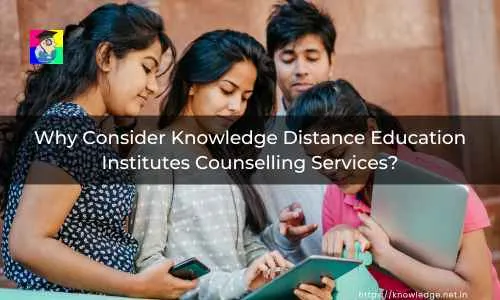Top 5 Myths About Distance Education In India And Debunking Misconceptions

Top 5 Myths About Distance Education in India And Debunking Misconceptions
Distance education has gained immense popularity in India over the years. With the advent of technology and the increasing demand for flexible learning options, more and more students are opting for distance education. However, there are still some myths and misconceptions surrounding distance education in India. In this blog, we will explore some of the most common myths about distance education in India and debunk them.
Myth #1: Distance education is not as good as traditional education
One of the biggest myths about distance education is that it is not as good as traditional education. Many people believe that distance education is an inferior form of education and that it does not provide the same level of learning as traditional education. However, this is not true. Distance education is designed to provide the same quality of education as traditional education, and in many cases, it can be even better. With the help of modern technology, distance education can offer a variety of learning resources and tools that traditional education may not provide.
Myth #2: Distance education is only for students who can't get admission in regular colleges
Another common myth about distance education is that it is only for students who cannot get admission to regular colleges. This is not true. Distance education is a viable option for students who want to pursue higher education but cannot attend regular classes due to various reasons, such as work or family obligations. Many students choose distance education because it offers flexible learning options that fit their busy schedules.
Myth #3: Distance education is easier than regular education
Another common myth about distance education is that it is easier than regular education. This is not true. Distance education requires the same level of dedication and hard work as traditional education. In fact, some students find distance education more challenging because they have to manage their own time and motivate themselves to stay on track.
Myth #4: Employers do not value degrees obtained through distance education
Another myth about distance education is that employers do not value degrees obtained through distance education. This is not true. In today's world, employers are more concerned about the skills and knowledge that a candidate possesses, rather than the mode of education. As long as the degree is obtained from a recognized institution, employers value it just as much as a degree obtained through traditional education.
Myth #5: Distance education is not recognized by universities and government institutions
Finally, there is a myth that distance education is not recognized by universities and government institutions. This is not true. Distance education is recognized by the University Grants Commission (UGC) and other regulatory bodies in India. Many universities in India offer distance education courses and degrees, which are recognized by the UGC and other institutions.
In conclusion, distance education in India is a viable option for students who want to pursue higher education but cannot attend regular classes. There are many myths and misconceptions surrounding distance education, but it is important to understand that distance education is designed to provide the same quality of education as traditional education. As long as the degree is obtained from a recognized institution, employers value it just as much as a degree obtained through traditional education.
Did you come across any other myths about distance education in India? Comment below.
















